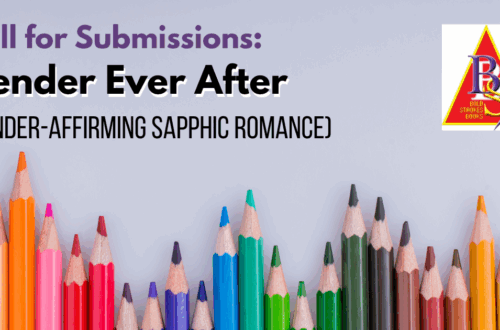Sometimes we all wonder how things come to be. A chain of events: A leads to B leads to C leads to Z. Each life is made up of big decisions and each day is made up of a million little decisions. What shirt to wear, what street to walk on, what to eat for lunch. Now all of these seemingly inconsequential choices may change your life forever. But who can handle that kind of responsibility? It would paralyze you to think about it. So you have to trust your instinct, what the Greeks might call your character. You better pray to whatever god you believe in that your character knows what the hell it’s doing.
– opening monologue from the 1997 film Playing God
I’ve been thinking a lot about character lately. Not only because one of my long-term goals, especially now that I’m getting back in touch with my own life path and am less preoccupied with throwing all my emotional/mental/creative/romantic/leisure energy to someone else, is to write fiction – by which I mean novels. More than one. And I love character studies, it’s one of the reasons I love writing, reading, psychology, drama, humans, living.
That sounds cheesy, perhaps, but it’s true. Sometimes I realize how much all my interests come together to aid me in what I really believe is my own life’s ‘higher purpose’: writing. And encouraging personal expression. (I have lots more to say about that, but I’ll save it for another time. Most if it is still formulating anyway.)
So, I’ve been reading Getting Into Character: Seven Secrets a Novelist can Learn from Actors by Brandilyn Collins, and it’s not just any actor from which to learn these secrets, but the famous Stanislovsky “method acting” approach. Very interesting stuff, I tell ya.
(I’m also reading Reading Like a Writer by Francine Prose which I’d also highly recommend. Trying to keep myself inspired literarily. It seems to be working, though I haven’t been generating much work that I would call particularly notable.)
And I think I’ve also mentioned that I’m in therapy, and have been seeing the same therapist since mid-April or so. I really like the idea of long-term therapy, but I’ve never actually been with a therapist longer than a few months. I tend to get discouraged because I’m pretty good at being able to put together a narrative for my life, I’m pretty good at drawing my own conclusions and making my own connections, which I think is what most people get out of therapy. So I’ve been trying to wrap my head around what it is that I could get out of therapy, how to approach it, what the ‘arc’ of the story with my therapist would look like.
Combined with this recent, more serious literary focus of mine, I’ve begun to see therapy as a form of character study for my own self. The point isn’t so much to change myself, at least not at this stage. The point is first to watch my own stories, to listen to my own stories, to notice the patterns and recurrences and sticking points and issues and whatever else might come up. To begin to bring to the forefront some of my unconscious character traits, the ones that I am so far inside of that I don’t notice.
You know, like how you have to leave your home country – or, hell, your home state – to begin to understand and notice what the localized culture was where you grew up? I have to have some new perspective, a fresh glance, at my own self, in order to get an accurate gauge of my character.
I think getting a new perspective on your own character, re-setting or re-defining your own character, is why people like falling in love so much – or, at least, maybe it’s why I like falling in love. I get to tell my best life stories all over again. I get to explore and express my views and outlooks and ideas about life and love and worship and desire in slightly new, sightly refined ways each time. I get to see someone else’s life presented to me in a beautiful way, and get to shine my own life back at her. It’s a personal study of character: mine, and someone else’s, someone who is particularly interesting, and intriguing.
Problem is, I suppose, that sometimes those character studies are terribly inaccurate. What we present is a selective view of ourselves, of course. Sometimes we present ourselves under false pretences. Sometimes we have even fooled ourselves into believing that we are something we aren’t. Sometimes those guises can be kept up for a long time.
And sometimes, someone else can seem so appealing, so shiny and authentic and intelligent and connected to me, deeply, that I begin to believe her, rather than believing myself.
I know, I know: you all have told me that I’ve listened to myself all along. And you’re not wrong, I know I’ve been voicing my suspicions from the very beginning of this relationship. But there’s still something there I can’t quite put my finger on. Because, see, despite my voicing my concerns, I was so high, soaring so high and felt so limitless with Callie. My own character developed in serious, shattering ways, ways that I feel like I’ve been waiting for for years. In some places, I was willingly torn down, willingly built back up. In other places, she attempted to tear me down and I wouldn’t allow it – there we had conflict. Yet other places in me she put a springboard underneath and I flew, I soared, I rocketed up to a new level, felt things I never expected to feel.
Maybe I’m being vague here. I’m talking about sex, and gender. I’m talking about the ways that I felt like such a powerful, strong, capable top with her. The ways that I was able to take control, harness desire, my own and hers. The ways that I was butch. The hundreds of tiny moments in our interactions where she was femme and I was butch, and I made so much sense, I made so much sense to myself, sometimes for the first time. I’ve always done these things – I’ve always taken care of the women around me, my friends and family, I’ve always been the one to open doors and flag down the waiter and refill a water glass, but suddenly it had purpose, it had reason, it had some sort of intense sex and gender play behind it, and it was so, so hot.
I should be grateful to her for all that growth in me, but it’s still hard to actually feel it, not just know that I should feel it. I’m still too angry. It was as if the lenses all came into alignment over the last four weeks or so of our relationship and then everything became painfully clear.
And there’s still something here I can’t let go of. I hate that she continuously bubbles up to my conscious thoughts when I’m doing nothing, walking down the street, reading a book, sitting on the train. But there’s something underneath all of this that I haven’t figured out yet, and so I haven’t let go.
What is it?
Something to do with my own character. Something to do with figuring out who I am in the world, who I am as an adult, a woman, a caucasian queer/homosexual/lesbian/dyke, an American, a butch, a top. She helped me make shifts in my very identity make-up, shifts I’ve always wanted to make, but she changed other things too – and now I am having difficulty navigating the world, making all those millions of tiny daily life decisions unconsciously and trusting my character to pull through, because I’m so skeptical of what she has left me with.
How much of my changing was conscious, and intentional? How much of it was for me, and how much was for her (under false pretenses)? How do I figure out what she has changed in me? Sometimes I fear it has run deep, deep within, where I gave her so much permission to go. Where are the places that I wanted to change, where are the places she changed for her own gain?
So, I am beginning an official character study of myself. Through therapy, through writing. I’ve always done it through writing, really, but now I’ll just call it “official” and maybe it’ll get me somewhere new.
Meanwhile, like the buddhists and yogis say, I’m still trying to remember to breathe into where I’m already at, and accept it.




I like what you say here about the purpose that is created through being somebody's counter part. That is very much how I see things too. You can define yourself against someone else and their interpretations of the world, of themselves. It can be harrowing to look at yourself without that mirror. But I think you will find it an enlightening process. And eventually find your way back to you. You are all those things without the women you support.
Wow–you can write. You can really write. If I wasn't a lightweight who just had a glass of wine on an empty stomach, perhaps I'd say more. But, right now, that's all I've got. "I think getting a new perspective on your own character, re-setting or re-defining your own character, is why people like falling in love so much…"That was the spot–the spot where you grabbed me. And now, all I can say, is that you can write.